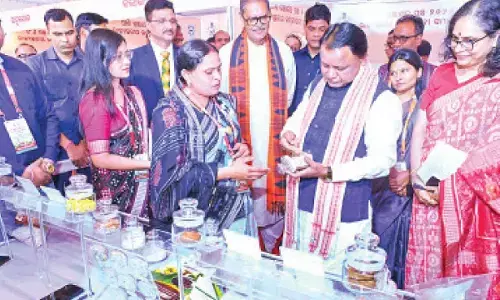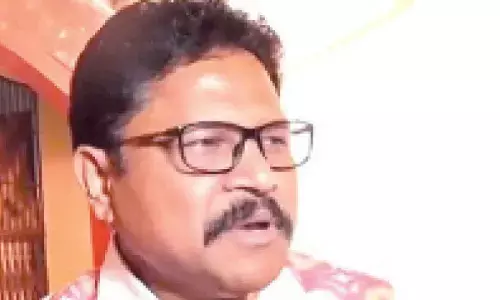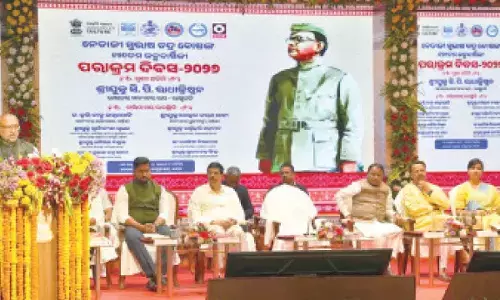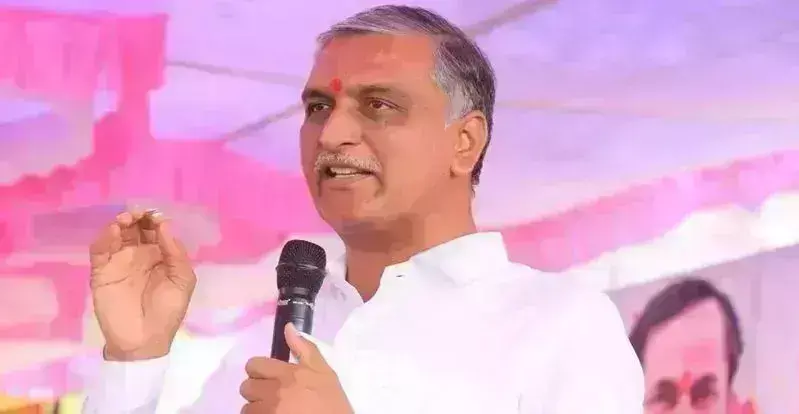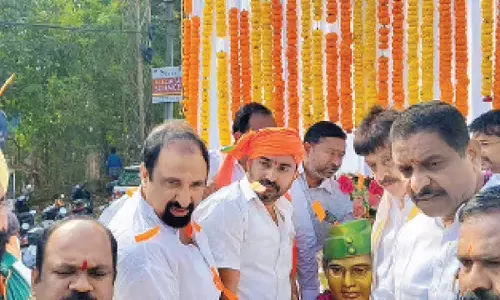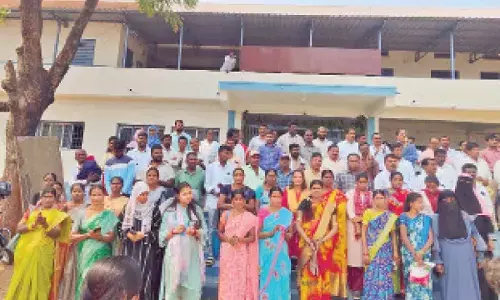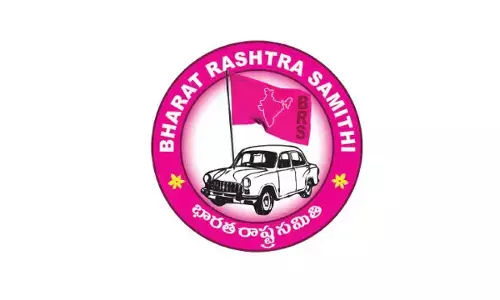An analysis of India-Africa relationships
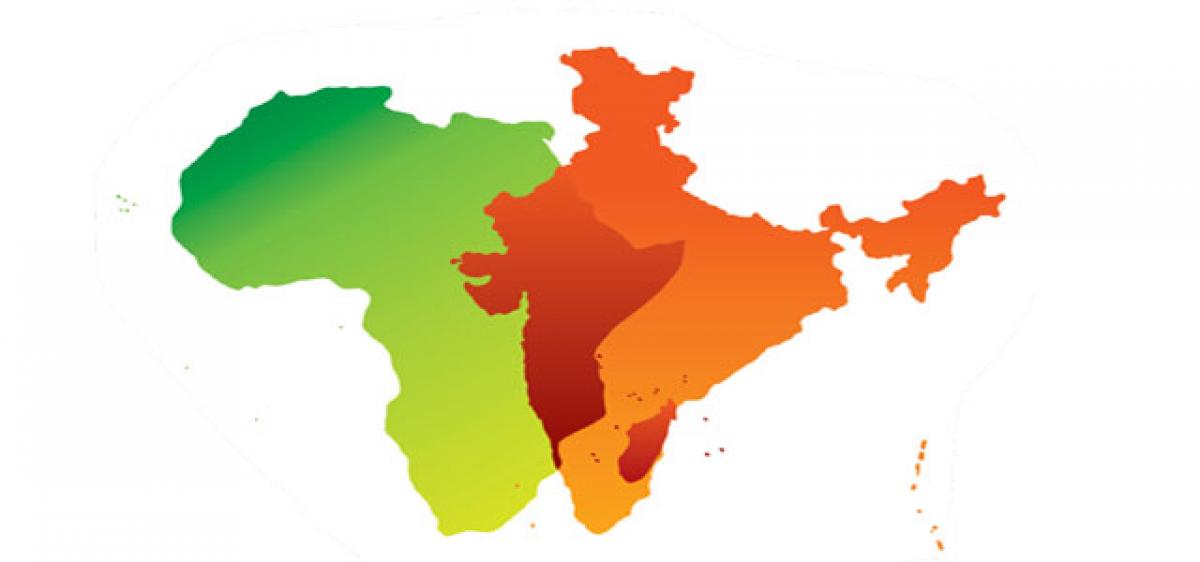
In the global geopolitics India needs to effectively engage with all countries across the world for engagement on multiple fronts. Africa as a dark continent is emerging as global theatre for all major powers for resources and power play. India has its task cut out though with historical ties. Importance of Africa:
In the global geopolitics India needs to effectively engage with all countries across the world for engagement on multiple fronts. Africa as a dark continent is emerging as global theatre for all major powers for resources and power play. India has its task cut out though with historical ties.
Importance of Africa:
Geostrategic
- Africa is critical to India’s security, especially the Horn of Africa region, because of its proximity with India. The threat of radicalism, piracy, organized crime emerge from this region
Economic
- Africa can help us in diversifying our energy sources, which is one of the stated objective of our Integrated Energy Policy
- Africa also contains rich reservoir of valuable minerals, metals including gold and diamond
- Africa provides a space for Indian investment
- Africa has ample agricultural land which cab address India’s food security. India is looking at leasing land in Africa to overcome the land deficit that we face in terms of arable land
Geopolitical
- Support of African countries is important for India’s aim of gaining a permanent seat in UNSC
- Africa provides a space for displaying both India’s soft and hard power
- India has been actively involved in peace and stability of African countries through UN Peace keeping operations. India is involved in capacity building of African countries. Africa is also the largest beneficiary of India’s ITEC programme
Facts about Africa
- Africa is an amazing continent. From its start as the heart of humanity, it is now home to more than a billion people.
- The East African Rift zone, which divides the Somalian and Nubian tectonic plates, is the location of several important discoveries of human ancestors by anthropologists.
- The active spreading rift valley is thought to be the heartland of humanity, where much human evolution likely took place millions of years ago.
- The discovery of the partial skeleton of “Lucy” in 1974 in Ethiopia sparked major research in the region.
- Africa is located to the south of Europe and southwest of Asia. It is connected to Asia via the Sinai Peninsula in northeastern Egypt.
- The peninsula itself is usually considered part of Asia with the Suez Canal and the Gulf of Suez as the dividing line between Asia and Africa. African countries are usually divided into two world regions.
- The countries of northern Africa, bordering the Mediterranean Sea, are usually considered part of a region called “North Africa and the Middle East” while countries south of the northernmost countries of Africa are usually considered part of the region called “Sub-Saharan Africa.”
- As the Prime Meridian is an artificial line, this point has no true significance. Nonetheless, Africa lies both all four hemispheres of the Earth.
- Africa is also the second most populous continent on Earth, with about 1.1 billion people. Africa’s population is growing faster than Asia’s population but Africa will not catch up to Asia’s population in the foreseeable future.
- In addition to its high population growth rate, Africa also has the world’s lowest life expectancies.
- According to the World Population Data Sheet, the average life expectancy for citizens of Africa is 58 (59 years for males and 59 years for females.) Africa is home to the world’s highest rates of HIV/AIDS – 4.7% of females and 3.0% of males are infected.
- With the possible exceptions of Ethiopia and Liberia, all of Africa was colonized by non-African countries. The United Kingdom, France, Belgium, Spain, Italy, Germany, and Portugal all claimed to rule parts of Africa without the consent of the local population.
- With 196 independent countries on Earth, Africa is home to more than a quarter of these countries. As of 2012, there are 54 fully independent countries on mainland Africa and its surrounding islands.
- All 54 countries are members of the United Nations. Every country except Morocco, which is suspended for its lack of a solution to the issue of Western Sahara, is a member of the African Union.
- Africa is fairly non-urbanized. Only 39% of Africa’s population lives in urban areas. Africa is home to only two megacities with a population greater than ten million: Cairo, Egypt, and Lagos, Nigeria.
History of India Africa Relations
The foundations were laid by Mahatma Gandhi. According to him, there will be a “commerce of ideas and services and not of raw materials and goods like imperialist powers”. The present government continues to take this approach as the foundation of India’s Africa Policy. According to Vice President Hamid Ansari, “ India shares Africa’s dreams and India Africa cooperation is genuine 2 way street partnership”.
Relations uptill 1960
Nehru talked about Afro Asian solidarity. African countries provided strength to Nehru’s NAM. The policy in this phase is described as “ideational” and “pragmatic”
2nd phase (1970s – 1990s)
There was neglect of Africa because of India’s attention on South Asia and India’s attention on inward looking foreign policy. Though India in this phase continued to support Africa against Apartheid.
3rd phase (1990s onwards)
This is the phase of reengagement with Africa. However the lead was taken by private sector, rather than government. Private sector of India should be given credit to push attention of GoI towards the region of strategic and economic importance.
Present status of relations
Since 2008, India and Africa relations have been institutionalized. India has started engagement with African Union (Pan African Platform). So far 3 summits have been organized under the aegis of India Africa Forum Summit. It is to be noted that the approach of GoI is also influenced by China. China has also initiated the Forum for Africa and China cooperation in the year 2000.
Strategies adopted by Indian government:
- Pan African level engagement
- Partnership with regional organization
- Development partnership through IBSA and BRICS
- Bilateral engagement with countries
- Involving Indian communities and Indian Diaspora
Whether India’s relationship with Africa should be seen through Chinese prism?
- While China has been in Africa’s infrastructure, mining, oil and natural gas sectors for many years, India, despite moving late, has worked through training, education and capacity-building programmes — which have been very well-received by the countries.
- China is developing series of important ports in Africa on the western and eastern coast right uptill Mediterranean and building rail linkages to connect to those ports
- Over the last 15 years, India-Africa trade has gone up 20 times, and reached, according to the government, $ 70 billion.
- Indian investment in Africa is between $ 30 billion and $ 35 billion.
- India has given concessional credit to the tune of $ 7.4 billion, of which $ 5 billon has been disbursed. The credit lines have helped create 137 projects in 41 countries.
- A Pan-African e-Network for education and health is functional in 48 countries.
- Since 2008, India has extended 40,000 scholarships to African countries under ITEC programme
- Thus it would be wrong to conclude that India’s African outreach is with a view to counter China’s expanding influencing in the region. Moreover Chinese strategy of exporting Chinese labour as part of its push to create excess capacity abroad to counter unemployment in China is rattling the African population. There have been protests against the discriminatory employment practices of China in matters of employment in Nigeria, Kenya etc.
Challenges India faces from the presence of countries like U.S in Africa
- S trade with Africa initially was high because of its strategy to reduce dependence of middle East oil and hence they went for greater purchase from Africa. With shale revolution in USA, trade volume has declined. USA still involved in infrastructural development, export of commodities (food stuff, refined products), export of equipments, projects for Mineral exploration. All these fields are also what India is interested in. Same is the case with china
- USA along with China has also been offering soft loans which are being lapped up by capital starved African nations
Shortcomings of U.S (and other developed countries) involvement
- S products are too costly for African customers compared to Indian and Chinese products
- Export of raw materials to USA unlikely to grow a lot because of relative stagnation of GDP growth rate of U.S economy compared to India and china
- USA’s involvement in building transport infra etc can lead to increased sale of Indian cars etc which are cheaper
- Development of African primary industries by these countries can lead to increased exports to India
Shortcomings of India’s involvement in Africa
- In terms of cheque book diplomacy, India cannot compete with China or U.S. Some of the African countries, even the richer ones like Nigeria, expect India to bear gifts for them under IAFS. However India asserts for joint endeavour for better development
- India abrogates its responsibility in terms of mid stream and downstream delivery processes, instead relying on multilateral agencies like African Union. This leads to India losing credit for a project despite the financial, technological backing it gives
- India contributed a lot more than other countries in terms of ebola relief but did not highlight it. Indian assistance was largely through multilateral forums and in a piecemeal manner
Impact of IAFS process so far
- India has committed unprecedented level of resources to Africa (in soft loans and grants). $5bn in soft loans, half a billion dollars in grants, institution building and training fellowship to Africa
- Earlier in IAFS 1 India had offered DFQF (Duty Free Quota Free) access to LDCs of Africa
- Increased people to people contact as observed in the increasing flow of medical tourists, students, trainees and Indian entrepreneurs and experts.
- IAFS process has also given a boost to cultural and information contact and mutual awareness
- Growth in India’s trade and investment activities has partially slowed down due to the effects of recession.
SWOT analysis
Strength
- Indian diaspora in Africa to be leveraged for involvement in building social infra
- Similar socio economic challenges and historical linkages
- Indian developmental model more in line with Africa’s needs
- Private sector involvement in Africa. India’s private sector is involved in 2x more Greenfield projects as compared to Chinese counterparts. Another advantage that India has, in any projects it employs local people thereby generating employment, earning goodwill. China exports Chinese labour.
Weakness
- Multiple competing interests present. China and USA are the top 2 trading partners
- Chequebook diplomacy can not be done by India
- Lack of emphasis on bilateral relationships instead engaging mostly through forums like IAFS
Opportunities
- Shift from line of credit approach to private sector involvement which would help in providing loans at cheaper interest rate, risk mitigation
- Better organized, more coherent and faster responding mechanism accompanied by an appropriate media campaign required for highlighting India’s contribution
Threats
- Bureaucratic hurdle in trade expansion as we interact largely with African Union. We have focus on nations individually to take projects forward
- No efforts by India to curb racial discrimination. Several reports in the past have highlighted that the propensity if Indians to discriminate on grounds of race is quiet high. China has undertaken educational projects to bury the African stereotype
IAFS 3 – Delhi Declaration
The declaration placed development cooperation at the heart of India-Africa partnership, with India unveiling $10 billion in Lines of Credit for a host of development projects over the next five years and pledging a grant assistance of $600 million. This grant includes an India-Africa Development Fund of $100 million and an India-Africa Health Fund of $10 million. It will also include 50,000 scholarships in India over the next five years and support the expansion of the Pan Africa E-Network and institutions of skilling, training and learning across Africa.
Amid the growing salience of ocean economy, IAFS-III mapped out a blueprint for enhanced cooperation in developing blue economy and to promote what Prime Minister Narendra Modi called “the blue revolution.” Blue Economy aims at sustainable development of marine resources, which will drive growth and prosperity of India, Africa and other littoral states blessed with long coastlines.
The third India-Africa Forum Summit saw a striking convergence of positions between India and 54 African countries to address a host of cross-cutting global issues, ranging from the UN Security Council reforms, piracy/maritime security and terrorism to multilateral trade negotiations, climate change and sustainable development.
India plans to conduct a new training course at the Centre for UN Peacekeeping (CUNPK) in New Delhi and at other Peacekeeping Training Centers in Africa dedicated for Training of Trainers from upcoming Troop Contributing Countries from Africa. They also agreed on jointly promoting greater involvement of the Troop Contributing Countries in the decision-making process.
Political Relations
- Even though tackling its own problems within the first two and three decades, India shared experts in the field of agriculture and other fields. This helped generate goodwill
- Africa can be said to be a home to one of the fastest growing countries of the decade
- Today the Indian-African diplomatic relations range from India – Africa Forum Summit (IAFS), India Regional Economic Communities (RECs) meetings, annual India – Africa trade ministers meeting along with others
- It goes ahead with business meetings such as the ‘Pan Africa e-network’ and multilateral forums such as the ‘Indian Ocean Rim Association for Regional Cooperation’ (IOR – ARC)’
- The India-Africa Summits since 2008 have further enhanced the South-South cooperation
- India has been an active member of the UN peacekeeping missions to Africa for conflict management in the region
- Strengthened the political bond through forums and groupings such as IBSA and BRICS
Economic Relations
- There is a positive change observed within the African continent and their urge to economically diversify is visible
- Business bodies such as the CII and FICCI are playing a very substantial role in bringing Africa and India relationships and making strategic partnerships.
- A recent FICCI study ‘The Rising India’ says, “Nowhere in the world is the impact of economic growth and development as visible as in Africa”
- The development of Africa with respect to the growing middle class, reducing poverty and growing trend of globalization makes it an apt destination for India to engage in investments and trade with Africa
- Our exports include medicines, refined petroleum products and others. This enables us to find an alternate promising market when our markets of the west are slowly diminishing due to various economic and political reasons. This enables the dream of ‘Make in India’ going strong
Issues
- The African Development Bank’s decision to hold its annual general meeting in India this month is a signal of the importance African countries attach to New Delhi’s growing role in its development.
- It was nearly a decade ago, in 2008, that India made a serious attempt for a strategic partnership with all of Africa, instead of just the nations it traded with, at the first India-Africa Forum Summit.
- At that time, India’s efforts seemed minimal, a token attempt at keeping a foothold in a continent that was fast falling into China’s sphere of influence.
- New Delhi had its work cut out, building a place for India as a partner in low-cost technology transfers, a supplier of much-needed, affordable generic pharmaceuticals, and a dependable donor of aid that did not come with strings attached.
- Over the past few years the outreach to Africa has also been driven by visits of President, Vice-President and Prime Minister.
- Every country in Africa has by now been visited by an Indian Minister, highlighting the personal bonds India shares.
- During the India-Africa summit held in Delhi in 2015, the Centre announced a further $10 billion export credit and a $600 million grant which, despite being a fraction of the aid Africa received from China and blocs such as the European Union, was a significant sum for India.
Competing in a powerful neighbourhood
- Having established its credentials and commitment over time, the Centre is now taking its partnership beyond dollars and cents to a new strategic level.
- To begin with, India is working on a maritime outreach to extend its Sagarmala programme to the southern coastal African countries with ‘blue economies’;
- It is also building its International Solar Alliance, which Djibouti, Comoros, Cote d’Ivoire, Somalia and Ghana signed on to on the sidelines of the AfDB project.
- In its efforts, India has tapped other development partners of Africa, including Japan, which sent a major delegation to the AfDB meeting.
- It has also turned to the United States, with which it has developed dialogues in fields such as peacekeeping training and agricultural support, to work with African countries.
- It is significant that during the recent inter-governmental consultations between India and Germany, both countries brought in their Africa experts to discuss possible cooperation in developmental programmes in that continent.
- But it is clear that at a time when China is showcasing its Belt and Road Initiative as the “project of the century” and also bolstering its position as Africa’s largest donor, a coalition of like-minded countries such as the one India is putting together could provide an effective way to ensure more equitable and transparent development aid to Africa.
Conclusion
It will take more heavy-lifting to elevate India’s historical anti-colonial ties with Africa to productive economic partnerships. India needs to continuously expand its outreach on multiple fronts and build a sustainable partnership with Africa to ensure it achieves a greater synergy in the years ahead to find a common ground.
Expected Questions
- Discuss the relations of India with Africa in the changed global scenario and geopolitics.
- India and Africa have shared a common past and still continue to share a common agenda. Throw light on the statement taking into consideration the recent developments.
Syllabus
General Studies 2
- Government policies and interventions for development in various sectors and issues arising out of their design and implementation.
- Bilateral, regional and global groupings and agreements involving India and/or affecting India’s interests.
- India and its neighborhood relations.
- Effect of policies and politics of developed and developing countries on India’s interests.
- International Studies: Relations between India and Africa in general and with important countries in particular
General Studies 1
Society: Common issues relating to poverty, malnutrition, unemployment, level of development, women’s issues and their comparison
History: Common struggle against colonialism
Geography: Natural Resources and demography
General Studies 3:
- Economy: Successful development models of countries such as South Africa
- Bio-diversity and Environment: Cooperation with Africa for climate change, preservation of biodiversity








